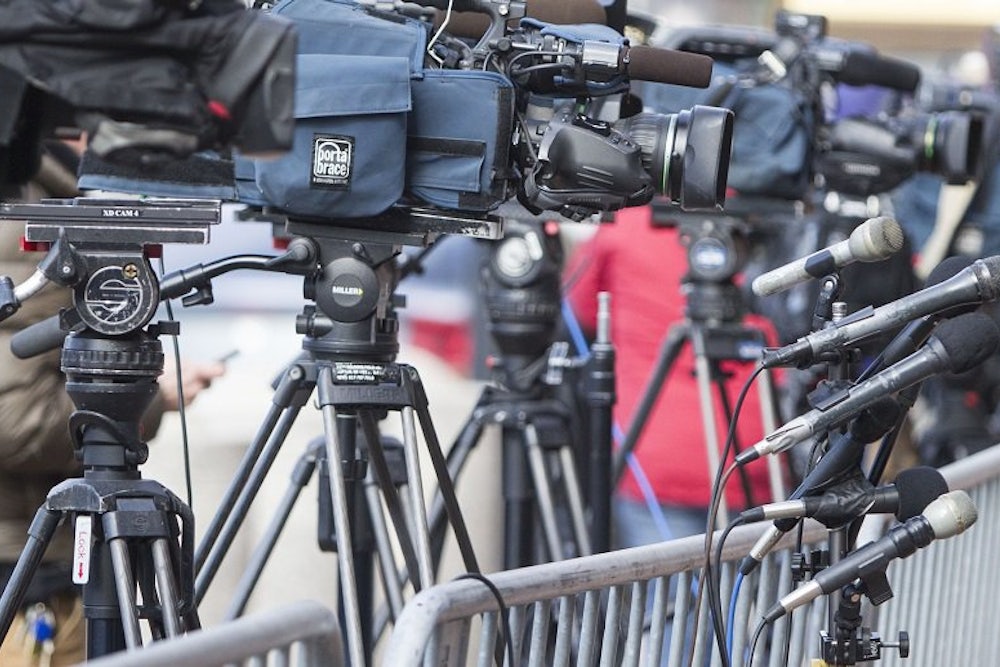The jury has spoken and Dzhokhar Tsarnaev, the Boston Marathon bomber, has been declared guilty. Jurors deliberated just over eleven hours before reaching a verdict today against Tsarnaev, who, along with his now deceased brother, Tamerlan, detonated two pressure cooker bombs near the Boston Marathon finish line in the 2013 attack that killed three people and injured 264. Jurors found Tsarnaev, who was 19-years-old at the time of the attack, guilty on all 30 charges, including 17 counts for which he can face the death penalty.
The verdict comes as no surprise—the physical evidence prosecutors presented against Tsarnaev during the 15-day trial was overwhelming. Tsarnaev himself reportedly confessed to the bombing after his arrest, and his defense team effectively conceded his guilt, stating point-blank during the trial’s opening statements that “It was him.”
So it’s fair to ask: Why was there a trial at all?
The reason is that this case has from the start been about how to mete out a punishment commensurate with the gravity of Tsarnaev's crime. The government, to be blunt, wants Tsarnaev dead. The defense is hoping jurors will spare his life. But other than using the case to state that defendants in terrorism cases should be given the same “Eye for an eye, you kill us, we kill you” treatment that prosecutors attributed to Tsarnaev in their closing arguments, there appear to be few benefits to pursuing capital punishment here.
In the months leading up to the trial, Tsarnaev’s defense team offered a plea that likely would have spared him from execution in exchange for life imprisonment. One of his attorneys, Judy Clarke, successfully negotiated such a life sentence for the Unabomber, Theodore Kaczynski, even though prosecutors had initially sought the death penalty. In Tsarnaev’s case, federal prosecutors reportedly refused to take the death penalty off the table as a potential punishment. The defense had little option but to go to trial.
Tsarnaev’s fate will be determined in the upcoming “penalty” phase of the trial, which is expected to begin next week, in which jurors will decide whether he should be executed or be sentenced to life in prison. The trial so far has mostly revisited the horror of the bombing itself—prosecutors introduced evidence in such graphic and gruesome detail that jurors wept. The focus now shifts to Tsarnaev. In the first part of the trial his lawyers made a tactical decision not to mount much of a defense, putting just three witnesses on the stand. Now they will introduce as much mitigating evidence as they can, trying to sway the jury to impose a life sentence. We may hear from Tsarnaev’s family and friends, from mental health experts, and from individuals who can attest to the defense’s central thesis: that Tsarnaev was not a true radical, but someone who was influenced by his elder brother, Tamerlan, who Tsarnaev’s lawyers say was the true mastermind of the attack.
However the jury decides, the case will serve as something of a referendum on the attitude of Americans towards the specter of terrorism more than a decade after the 9/11 attacks. Tsarnaev is certain to die in prison—the only questions are how and when. Should the jury spare his life, it may indicate that as a nation we’re moving away from pure retribution and toward more measured responses to terroristic crimes.
In recent weeks many Bostonians have expressed that while they want Tsarnaev to be held accountable, they also want closure. In the event that Tsarnaev is sentenced to death, such closure will likely face years of delays as his lawyers appeal the verdict.
For the federal prosecutors who doubled down to insist on bringing capital murder charges, however, the imposition of anything less than the death penalty will represent a colossal miscalculation. Attorney General Eric Holder, who has long stated his personal opposition to the death penalty and who earlier this year called for a national moratorium on executions, nevertheless authorized the death penalty in this case, saying “the nature of the conduct at issue and the resultant harm compel this decision.” Holder’s decision set the stage for prosecutors to force upon Boston a lengthy and expensive trial. The families of the victims and the survivors, many of whom were grievously injured in the attack, have seen their trauma revived. Prosecutors did this in a state that has no death penalty and in a city where polls show that the majority of residents oppose capital punishment.
A life sentence for Tsarnaev, though technically a victory for prosecutors, would amount to a rebuke against the government. The fact that the Justice Department expended such enormous effort, only to reach the same result its lawyers seem likely to have achieved by negotiating with the defense, means the entire proceedings were little more than a show trial. Given that juries in capital cases tend to be weighted towards people who are willing to impose the death penalty—as those who oppose it are more vocal about their position and thereby likely to be eliminated from the jury pool—the government may yet achieve the sentence it seeks. Whatever the jurors conclude in the coming days, they will no doubt be compelled to consider a question we all should ask ourselves: whether the death penalty constitutes justice, in this case or any other.
